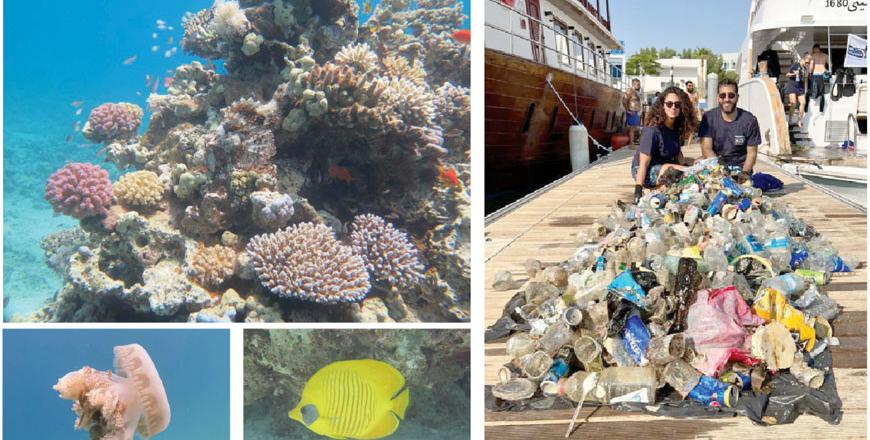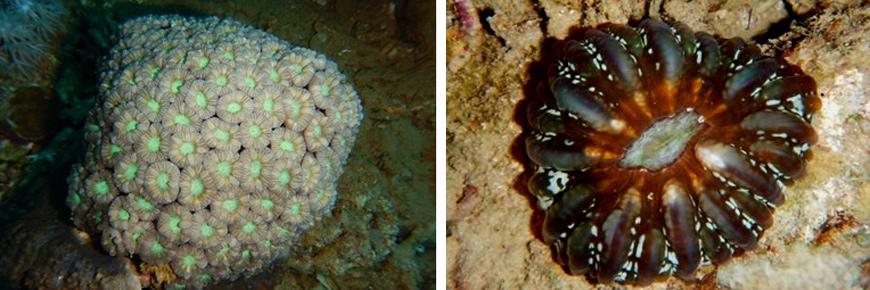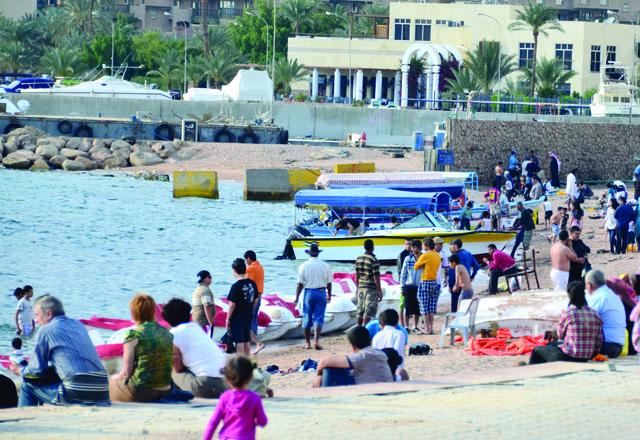You are here
Ocean Atlas’ Arabic version launched
By Hana Namrouqa - Oct 17,2017 - Last updated at Oct 17,2017
AMMAN — The Heinrich Böll Foundation on Tuesday launched the Arabic version of its Ocean Atlas, which illustrates the importance of the ocean, how to manage its resources and the threats facing the marine ecosystems.
The 50-page Ocean Atlas provides information, infographs, maps, articles and pictures, according to publishers, who indicated that the publication will be distributed for free and that it can be used for educational purposes, among others.
”It also provides basic information for people interested in understanding our marine ecosystems and the threats endangering them,” Bettina Marx, director of the Heinrich Böll Foundation office in Jordan and Palestine, said during the launching ceremony.
Marx indicated that Jordan and Palestine have coasts on the Red Sea, the Dead Sea and the Mediterranean Sea, noting that the two countries also have “more than their share of problems in the marine ecosystems”.
“Just think of the untreated wastewater polluting the sea off the Gaza Strip, think of the receding shore of the Dead Sea and consider the many dangers to the coral reefs in the Gulf of Aqaba. We decided to translate this informative publication into Arabic to make it available to our partners in the Arabic speaking world,” Marx highlighted.
The publication also investigates whether oceans are running out of fish stock and if fish farms are options for the future. It also covers the issue of garbage and plastics dumped into the ocean, the dangers of declining marine diversity and how the ocean can slow down climate change.
Minister of Environment Yaseen Khayyat described the Ocean Atlas in its Arabic version as a “distinguished contribution” to the existing data on marine environment and the threats it faces.
“Launching the Arabic version of the Ocean Atlas is a great contribution to efforts to protect marine and coastal ecosystems as it provides researchers and workers in the domain of coastal areas’ management a wealth of data and statistics,” Khayyat said at the event, speaking on behalf of HRH Princess Basma, Chairperson of the Royal Marine Conservation Society of Jordan (JREDS).
The minister cited figures showing that more than half of the earth population inhabits coastal areas, while marine ecosystems and coastal areas only constitute 10 per cent of the planet.
Khayyat highlighted that the coastal area in Jordan is strategically important as it is directly linked to the country’s socioeconomic and environmental growth.
He underlined that the coral reef ecosystems are the flagship of the Gulf of Aqaba, explaining that they are distributed along Aqaba’s 27-square-kilometre-long coastline and enjoy a unique biodiversity that necessitates cooperation to be protected.
JREDS Executive Director Ehab Eid said that the society will hold sessions with its partners in Aqaba to make the contents of the atlas available to the public, with a focus on the issue of littering.
“Littering harms marine ecosystems..., 80 per cent of underwater waste originate from the land,” Eid said at the event.
He underscored the interlinked dimensions of protecting the ecosystems of the Gulf of Aqaba and boosting the country’s socioeconomic development.
Related Articles
Aqaba reefs face substantial dangers of man-made variety, mainly overfishing, litteringAround 44% of coral species recorded in Red Sea only
AMMAN — A total of 7.5 per cent of hard corals registered in the Red Sea are endemic to the Gulf of Aqaba, according to a new study, which i
One to two square kilometres of Aqaba’s public beaches are lost every year to investment projects, according to marine conservationists.

















